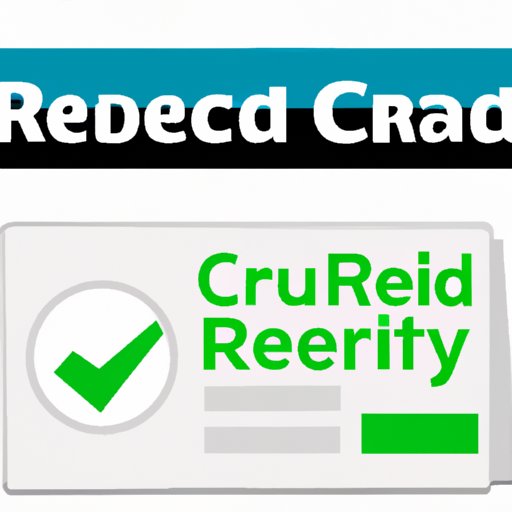
Introduction
Your credit report is a snapshot of your financial life and affects many aspects of it. It includes information about your credit cards, mortgages, car loans, student loans, and more. It reveals your payment history, credit limits, balances, inquiries, and accounts status. In short, it shows how well or poorly you manage your debt.
Checking your credit report regularly is vital. Why? Because it can alert you to potential identity theft, mistakes, and omissions that could hurt your credit score, and prevent you from getting loans, apartments, jobs, and other opportunities. In this article, we’ll explore where to get your free credit report and how to correct errors on it.
Why You Should Check Your Free Credit Report, and Where to Get It for Free
Checking your credit report regularly can help you detect and prevent identity theft, boost your credit score, qualify for loans and credit cards with better terms, and understand your financial situation. Identity theft, in particular, is a growing problem that affected 1.4 million Americans in 2020 alone, according to the Federal Trade Commission.
When you check your credit report, you can spot red flags such as unfamiliar names, addresses, accounts, inquiries, and delinquent payments. By disputing errors, you can prevent wrong information from hurting your credit score, which ranges from 300 to 850, with higher scores indicating better creditworthiness.
So, where can you get your free credit report? There are three major credit bureaus in the U.S. that compile and report credit histories: Equifax, Experian, and TransUnion. By federal law, you’re entitled to a free credit report from each bureau once a year (i.e., a total of three credit reports per year). The official website to request your free reports is AnnualCreditReport.com.
7 Best Websites to Get Your Free Credit Report Fast
Apart from AnnualCreditReport.com, there are other websites where you can get your credit report for free. Here are the top 7:
1. Credit Karma: This website offers free credit reports and scores from both TransUnion and Equifax. You can sign up for a free account and get updated reports every week.
2. Credit Sesame: This website offers free credit reports and scores from TransUnion, as well as credit monitoring and personalized advice. You can also sign up for a free account.
3. Mint: This website offers free credit reports and scores from Equifax, along with budgeting tools, investment tracking, and account alerts. You can also sign up for a free account.
4. NerdWallet: This website offers free credit reports and scores from TransUnion, as well as credit score simulators, financial calculators, and credit tips. You don’t need to create an account.
5. WalletHub: This website offers free credit reports and scores from TransUnion, along with credit monitoring, identity theft protection, and personalized advice. You can sign up for a free account.
6. Experian: This website offers a free credit report and score from Experian, as well as credit monitoring and identity theft protection. You can sign up for a free account.
7. Discover: This website offers a free credit report and score from Experian, even if you’re not a Discover cardholder. You don’t need to create an account.
Note that some of these websites may require you to provide personal information, such as your name, address, social security number, and email, to verify your identity and access your credit report. However, they won’t affect your credit score or report in any way, and they may offer additional features and benefits.
5 Simple Steps to Request Your Free Credit Report Online
To request your free credit reports online, follow these simple steps:
1. Go to AnnualCreditReport.com.
2. Click on the “Request your free credit reports” button.
3. Fill out the online form with your personal information, including your name, address, social security number, and date of birth.
4. Choose which credit reports you want to receive (Equifax, Experian, TransUnion, or all three).
5. Answer a few security questions to verify your identity and submit your request.
You’ll then receive your credit reports in a matter of minutes or hours, depending on the website and the credit bureau. Make sure to review each report carefully for errors, omissions, and inconsistencies. You can dispute errors by contacting the credit bureau and providing evidence of the correct information.
How to Access Your Free Credit Report by Phone and Mail
If you prefer to request your credit report by phone or mail, you can do so as well. Here are the steps:
To request your credit report by phone:
1. Call 1-877-322-8228.
2. Follow the automated instructions to verify your identity and choose which credit reports you want to receive.
3. Your reports will be mailed to you within 15 days.
To request your credit report by mail:
1. Download and print the Annual Credit Report Request Form from AnnualCreditReport.com.
2. Fill out the form with your personal information and choose which credit reports you want to receive.
3. Enclose a copy of your driver’s license, passport, or other government-issued ID, as well as a copy of a recent utility bill or bank statement to verify your address.
4. Mail the form and the documents to the address provided on the form.
5. Your reports will be mailed to you within 15 days.
The Essential Guide to Obtaining Your Free Credit Report Annually
As mentioned earlier, you’re entitled to a free credit report from each bureau once a year. By spreading out your requests, you can monitor your credit report throughout the year and catch errors or fraud as soon as possible. Here’s a guide to obtaining your free credit report annually:
1. Choose the first bureau you want to request a report from (Equifax, Experian, or TransUnion).
2. Go to AnnualCreditReport.com, and follow the steps outlined above to request your credit report from that bureau.
3. Review your report for errors and inconsistencies.
4. Dispute any errors by contacting the credit bureau and providing supporting documents.
5. Wait at least three months before requesting a report from another bureau.
6. Repeat the process for the other two bureaus, making sure to keep track of the dates and details of each request.
Understanding the Differences Between Free Credit Reports and Credit Scores
It’s essential to understand the difference between a credit report and a credit score to manage your credit wisely. While a credit report shows your credit history, a credit score is a three-digit number that summarizes it. There are several types of credit scores, but the most commonly used are FICO and VantageScore.
Your credit score is based on your credit report, but not identical to it. It takes into account factors such as your payment history, credit utilization, length of credit history, type of credit, and new credit inquiries. A higher score indicates that you’re less risky to lend to, and a lower score indicates that you’re more risky.
While you can get your credit report for free, you may have to pay to get your credit score from the credit bureaus or other providers. However, some of the websites mentioned earlier offer free credit scores as well, so you can check both your report and your score without paying.

Tips for Correcting Errors on Your Free Credit Report
If you find errors on your credit report, you can take steps to correct them. Here are some tips:
1. Check all the details: Review your credit report carefully and make sure that all the items are accurate, up-to-date, and relevant to you. Pay attention to misspellings, wrong addresses, incorrect balances, outdated accounts, and unauthorized inquiries.
2. Document the errors: Keep a record of the errors you find, including the date, the credit bureau, and the item. Make copies of any supporting documents, such as receipts, statements, or letters.
3. Dispute the errors: Contact the credit bureau that issued the report and dispute the errors in writing. Include your name, address, social security number, the item you’re disputing, and the reason why. Attach the copies of the supporting documents.
4. Follow up: The credit bureau has 30 days to investigate your dispute and respond to you. If the errors are corrected, the bureau will send you a new credit report. If they’re not corrected, you can escalate the dispute by contacting the creditor or filing a complaint with the Consumer Financial Protection Bureau or the Federal Trade Commission.
Conclusion
Checking your credit report regularly is a vital part of managing your finances. By doing so, you can detect and prevent errors and fraud, boost your credit score, and qualify for better loans and credit terms. In this article, we explored where to get your free credit report, how to request it online, by phone, and by mail, how to obtain it annually, and how to correct errors. We also discussed the differences between credit reports and credit scores, and the importance of understanding and managing both.





